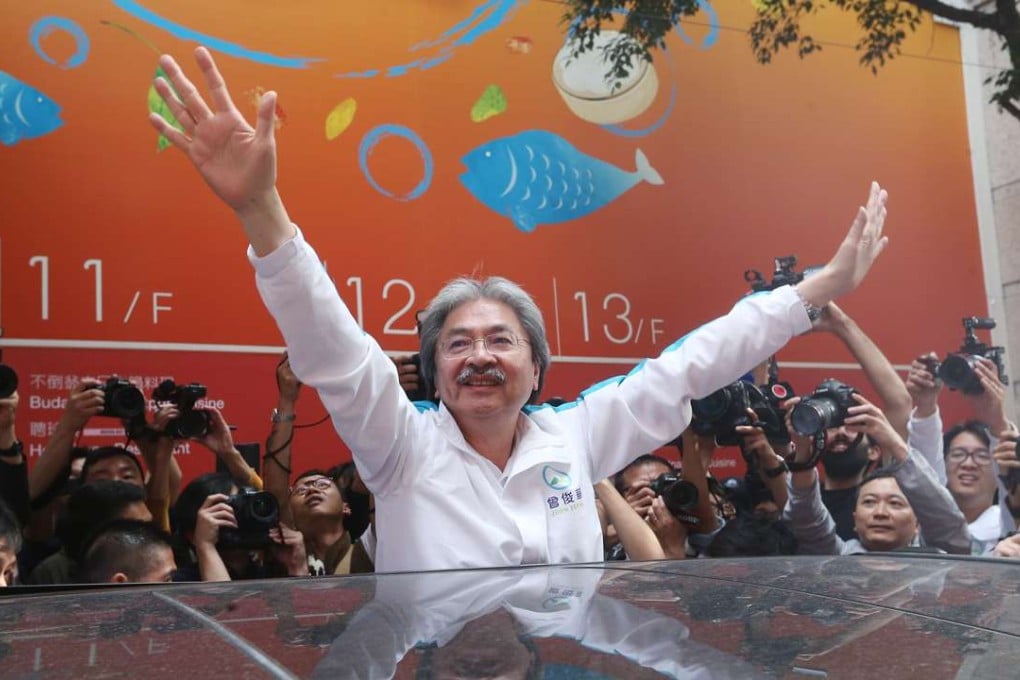Why is Hong Kong’s John Tsang popular with the people, but not the voters?
Polls consistently show the chief executive candidate to be more popular than rival Carrie Lam – but Hong Kong’s election is no popularity contest

Hope, unity, trust. Those were the words John Tsang Chun-wah pushed in his campaign to become Hong Kong’s next chief executive, and judging by the reception his last-gasp tour of Hong Kong island received on Friday, they certainly inspired the public. But whether those words were enough to inspire the voters – namely, the 1,194-member Election Committee – appears far less likely.
Tsang has long commanded opinion poll leads over his rival, Carrie Lam Yuet-ngor, and that popularity was reflected in the rally that came less than 48 hours before the election and saw him swamped by thousands of supporters in Central.
Opinion polls have in the past been good omens for chief executive hopefuls – the past two winners, Leung Chun-ying and Donald Tsang Yam-kuen, also commanded strong leads ahead of their election. But, on this occasion at least, Beijing appears not to have been swayed.
Communist Party loyalists, who dominate the Election Committee, are thought to favour his rival and even some Tsang supporters say his chances are slim.
The outlook was not always so pessimistic. Two Beijing-loyalists told This Week In Asia they would have voted for him had his rival been the incumbent Leung Chun-ying. When Leung chose not to stand, Lam’s emergence dealt a fatal blow to Tsang’s prospects.